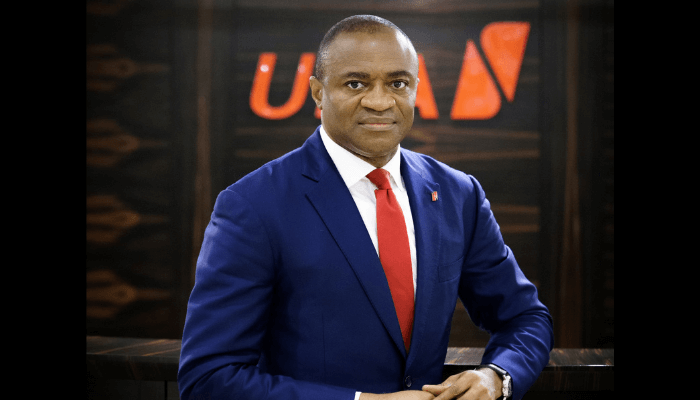Oliver Alawuba, Group Managing Director of United Bank for Africa (UBA) and Chairman of the Body of Bank CEOs in Nigeria, on Tuesday, called for urgent judicial reforms to support the country’s economic transformation, warning that delays in the legal system are exacerbating credit risks and impeding financial inclusion.
Speaking at the 23rd National Seminar on Banking and Allied Matters for Judges in Abuja, Alawuba stressed that a predictable and efficient judicial system is foundational to financial sector stability.
Read also: NECA makes case for fast-paced economic devt as employers hold summit
He specifically noted that the effectiveness of the financial system is largely dependent on a responsive and knowledgeable judiciary, particularly in resolving cases involving cybercrime, fraud, and enforcement of financial contracts.
“No economy can flourish without the enabling guardrails of justice,” he told an audience of senior judges and financial regulators.
“From credit systems to contract enforcement, the banking industry depends daily on the efficiency, fairness, and predictability of our judicial processes”, he added.
The seminar, themed Justice and Finance in Partnership: Enabling Trust, Security and Nigeria’s Economic Growth”, comes as Nigeria navigates a delicate economic transition marked by fiscal tightening, market reforms, and a renewed focus on financial discipline.
Citing BusinessDay data, Alawuba revealed that non-performing loans (NPLs) in Nigeria’s banking sector had surged to ₦1.57 trillion as of Q1 2025. This, according to him is a symptom of judicial inefficiencies as he urged urgent reforms, including digitisation, capacity building, among others.
“Judicial delays are not mere technicalities,” he said. “They raise the cost of capital and constrain banks’ ability to fund SMEs and job creation.”
He called for specialised financial courts, harmonised legal frameworks across jurisdictions, and deeper adoption of digital judicial tools.
“Our partnership is not one of convenience, but of necessity. Without a strong, efficient judiciary, banks will struggle to extend credit with confidence,” he added.
Drawing from global models, including Rwanda’s e-justice system, Singapore’s commercial courts, and the UK’s Financial List, Alawuba urged Nigeria to adapt proven mechanisms that can cut litigation time and boost investor confidence.
“The courts of this country should not be the places where the resolution of disputes begins. They should be where disputes end – after alternative methods of resolving disputes have been considered and tried.
“Justice delayed is not only justice denied, but justice mutilated”. Time is key to financial justice,” he stressed.
In her opening address, Kudirat Kekere-Ekun,
Chief Justice of Nigeria, also emphasised the judiciary’s vital role in fostering financial confidence and legal clarity.
“Judicial predictability is not just a legal virtue – it is an economic asset. It enhances market efficiency, lowers risk premiums, and unlocks capital for infrastructure and business development,” she stated.
Highlighting the need for continuous judicial education, particularly in digital finance, cybercrime, and fintech, she added: “Our courts must possess the capacity to interpret complex transactions and assess novel financial arrangements within the framework of existing laws.”
Read also: Nigeria’s reforms have put the country on the global economic map
Stressing the seminar’s theme in his remarks, Pius Olanrewaju, President and Chairman of Council, CIBN, noted trust as the lifeblood of banking, and security its bedrock. “Every financial transaction, from deposits to loans, hinges on the assurance that rights will be upheld, obligations fulfilled, and injustices addressed.”
He emphasised the judiciary’s role in upholding banking integrity and national growth.
Salisu Abdullahi, Administrator of the National Judicial Institute, in his welcome address
added: “A Judiciary that is both competent and fiercely independent doesn’t just resolve disputes; it actively underwrites economic growth.”
The seminar also highlighted alternative dispute resolution mechanisms, harmonised legal frameworks, and timely adjudication to enhance investor confidence.

